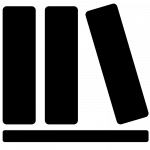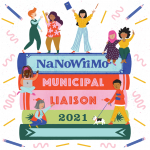One of the blogs I read all the time is JOHO (Journal of the Hyperlinked Organization). He was live-blogging a talk given by a CMU professor, and I was drawn into this awesome use of Captchas:
He says that about 200M captchas are typed every day. He was proud of that until he realized it takes about 10 seconds to type them, so his invention is wasting 500,000 hours per day. So, he wondered if there was a way to use captchas to solve some humungous problem ten seconds at a time. result: ReCAPTCHA. For books written before 1900, the type is weak and about 30% of the text cannot be recognized by OCR. So, now many captchas ask you to type in a word unrecognized when OCR’ing a book. (The system knows which words are unrecognized by running multiple OCR programs; ReCAPTCHA uses those words.) To make sure that it’s not a software program typing in random words, ReCAPTCHA shows the user two words, one of which is known to be right. The user has to type in both, but doesn’t know which is which. If the user types in the known word correctly, the system knows it’s not dealing with a robot, and that the user probably got the unknown word right.
Pretty cool use of everyone’s time! Check out the entire article here







